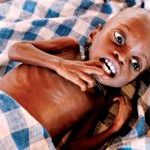- Have any questions? Contact us!
- info@dr-rath-foundation.org

What the ‘ARV defendants’ don’t want you to know about ARVs – part 6
October 28, 2008
What the ‘ARV defendants’ don’t want you to know about ARVs – part 8
October 28, 2008What the ‘ARV defendants’ don’t want you to know about ARVs – part 7

HIV Infection and AIDS Are Linked to Nutritional Deficiencies
| Questions and Answers About Aids |
| Does HIV exist? |
| Does HIV cause AIDS? |
| Does everyone who is diagnosed “HIV-positive” develop AIDS? |
| For more Q&As click here |
| More information |
| Back to introduction |
| Click here to read Dr. Raxit Jariwalla’s biography. |
| Potential beneficiaries for whom these web pages were built: More |
The relationship between HIV and AIDS and poor nutrition has been well established since the beginning of the AIDS epidemic (see e.g. HIV/AIDS: A Guide for Nutritional Care and Support. 2nd Edition. Food & Nutrition Technical Assistance Project, Academy for Educational Development, Washington DC, 2004).
Very early on with the emergence of HIV infection and AIDS, it was established that the disease was associated with protein calorie malnutrition as well as specific micronutrient abnormalities. Infection with HIV exacerbates the impact of poor nourishment, while poor nutrition hastens the progression of HIV infection to AIDS, wasting and death. Opportunistic infections and their associated symptoms limit food intake and intensify resting energy demands, increasing nutritional needs. HIV-related symptoms such as anorexia, nausea, vomiting, malabsorption and diarrhoea further worsen poor nutrition. For undernourished HIV-infected people, the resulting downward spiral of inadequate nutritional intake, inability to maintain weight and lean tissue mass, micronutrient deficiency and increased susceptibility to opportunistic infections accelerates the development of AIDS. This decline ultimately leads to malnourished, HIV-infected people who become economically unproductive and unable to control their illness.

HIV-positive infants and children face a confluence of three powerful nutritional challenges, namely high nutritional needs to sustain their growth rate, rapid progression to AIDS associated with significant wasting; and an immature, compromised immune system, with increased risk for opportunistic infections and diminished nutritional intake.
It is therefore essential in any treatment of HIV that a comprehensive nutritional programme is adopted. Such a programme should include, where necessary, supplementary meals and micronutrients. Such regimes, if implemented properly, will promote and enhance the immune systems of HIV-positive patients.
Optimal nutritional status and maintenance of adequate vitamin and mineral levels delays the progression to AIDS.
HIV-positive infants and children face a confluence of three powerful nutritional challenges, namely high nutritional needs to sustain their growth rate, rapid progression to AIDS associated with significant wasting; and an immature, compromised immune system, with increased risk for opportunistic infections and diminished nutritional intake. Consequently, all HIV-positive children under the age of 14 years should receive nutritional packages consisting of vitamin syrup and a supplement meal.
Providing HIV-infected pregnant women with a multi-vitamin supplement that contains vitamins B, C and E along with iron and folate reduces the potential for vertical transmission of HIV.


